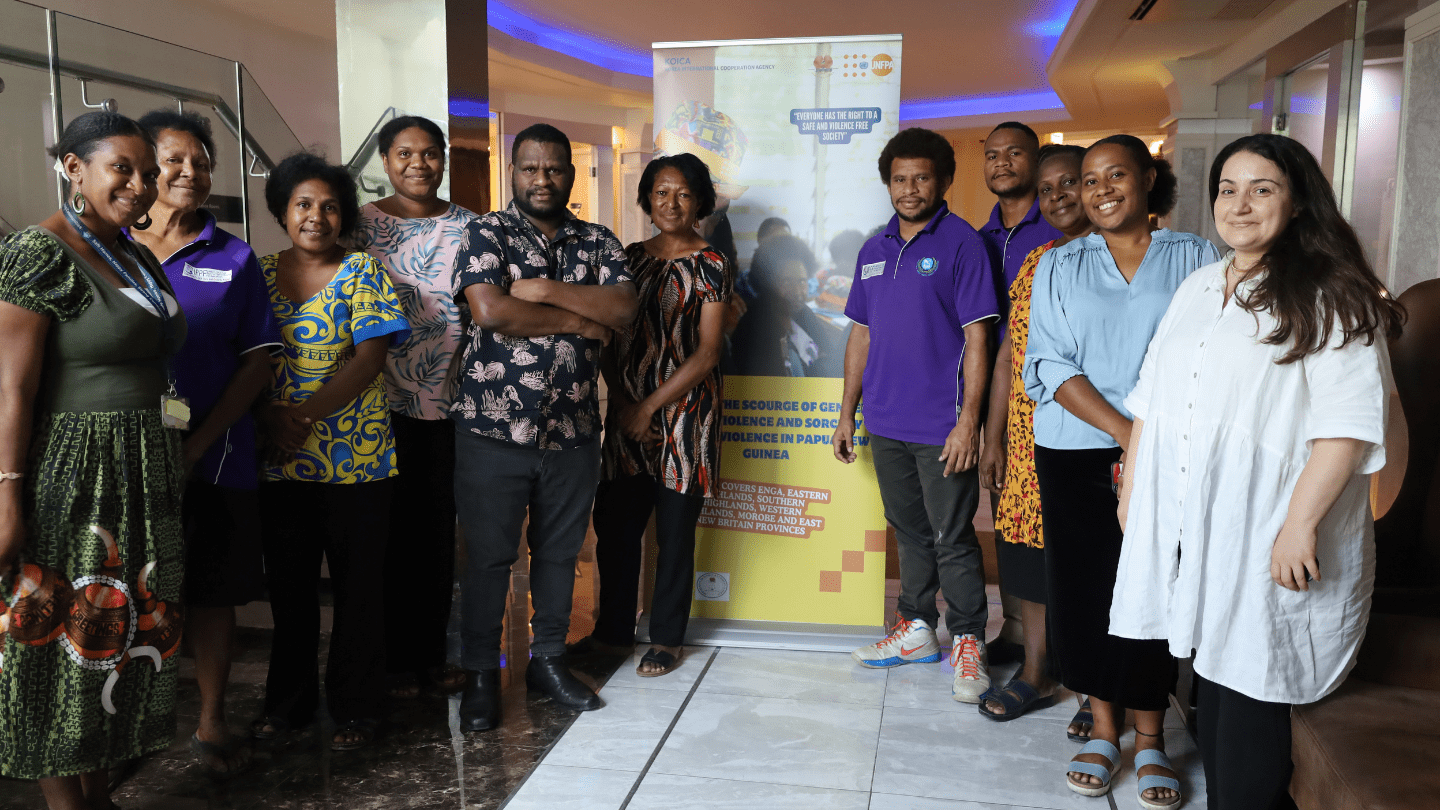From January 27 to 31, 2025, ten dedicated staff members from the Papua New Guinea Family Health Association (PNG FHA) took part in a transformative one-week training on Mental Health and Psychosocial Support (MHPSS) at Lamana Hotel, Port Moresby.
Facilitated by the United Nations Population Fund (UNFPA, through funding from Korea International Cooperation Agency (KOICA), the training aimed to strengthen mental health support for survivors of gender-based violence (GBV) and sorcery accusation-related violence (SARV). It also sought to enhance the capacity of healthcare workers to provide vital psychosocial care, an essential service for those in distress.
The training brought together seven women and three men, equipping them with key skills in Psychological First Aid (PFA), lay counselling and communication skills, including the importance of body language and empathetic approach when supporting individuals in crisis.
For Leah Boeagavi, a peer educator, the training represented a significant turning point in her work. “This is my first time receiving training on Psychological First Aid. It’s something that will definitely enhance my service delivery,” she said. The session on body language was especially impactful for Leah, who works with youth in both school and out-of-school settings, particularly through Comprehensive Sexuality Education (CSE). “I’m confident these new insights will improve how I engage with young people,” she added.
Namana Endoi, another passionate peer educator, expressed similar reflections: “I’ve learned how to better prepare myself for the experiences that survivors and those seeking services might go through,” she shared. “It’s not just about what we say—it’s about how we show up, especially through our body language.” Namana emphasized that the training’s lessons would be integral to her daily work with survivors of GBV and others needing support.
Dylan Roland, who has been involved with PNG FHA since 2016, saw immediate relevance in the skills he gained from the training. “The steps I’ve learned in offering services to survivors are practical and applicable to my work,” he noted. As a youth peer educator, Dylan emphasized the importance of ongoing professional development to improve outreach and support efforts, especially within PNG FHA’s youth education programs.
The training also highlighted an essential gap in providing support to individuals with special needs. Namana spoke to the importance of additional specialized training to address the unique challenges faced by individuals experiencing GBV or living with disabilities. She believes the lay counseling techniques she learned will be invaluable in her peer education work, ensuring that all survivors receive the compassionate and effective care they need.
The peer educators were supported in preparing group-based psychosocial support activities to engage youths. These activities create robust social networks, enhance resilience coping mechanisms and help to transform harmful social norms and attitudes.
The PNG FHA team was also introduced to stress management and self-care strategies, recognizing that GBV service providers frequently face significant stressors that can lead to burnout and vicarious trauma. By identifying and effectively managing stressors, they can prevent burnout and maintain the high quality of care provided to survivors.
Through their collaboration with PNG FHA, UNFPA has been strengthening outreach efforts that provide crucial information on GBV, sexual and reproductive health (SRH), and HIV/STI prevention. By bolstering mental health support with MHPSS training, these efforts contribute to the empowerment of women and girls, helping them overcome trauma and build resilience for a brighter future.
This partnership between UNFPA and PNG FHA has proven instrumental in expanding MHPSS services to communities, ultimately improving the mental health and well-being of individuals across the nation


